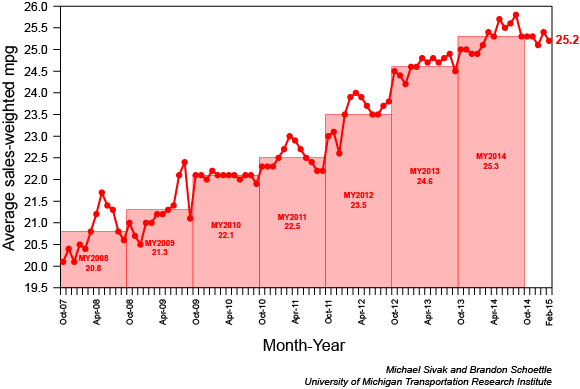No, but your assumption that the modern fleet is getting less efficient because of the truck and SUV sales is. It's simple. The US fleet is getting steadily more efficient. That, all things being equal, will reduce the gasoline demand over time.
I did a simple Google search on "us fleet fuel efficiency" to get links like these, which clearly demonstrate this:
https://www.rita.dot.gov/bts/sites/rita ... 04_23.htmlhttps://phys.org/news/2016-11-average-f ... h-mpg.htmlhttp://www.umich.edu/~umtriswt/EDI_sale ... d-mpg.htmlThe flattening of the NEW vehicle fleet mileage since 2014 is likely caused by the switch to bigger vehicles, like the trucks and SUV's. However, the overall trend is still moving up as younger vehicles are replaced by newer vehicles with an overall mpg near 25.
And this is an example of why a sizable transportation fuels CO2 tax would be so great in the US. A solid wallet-based incentive would give everyone buying a big truck or SUV who has no need for one a BIG incentive to buy, say, a hybrid sedan getting twice the real world MPG instead (oh, and likely a cheaper sticker price than the giant truck or SUV as well).
Actually, given how many people are buying the inefficient vehicles, it's impressive to me that the US mpg trend for new vehicles is managing to remain roughly flat.

